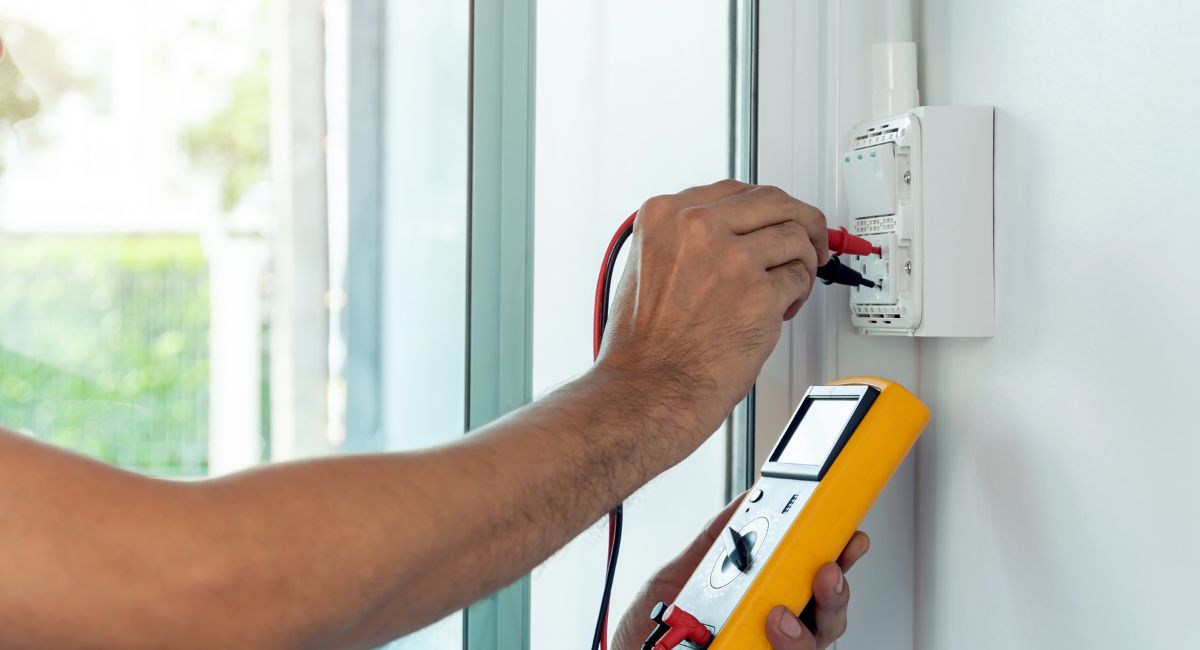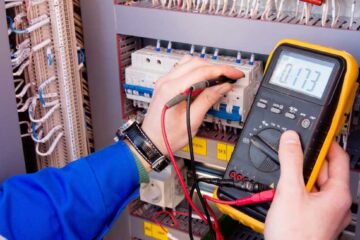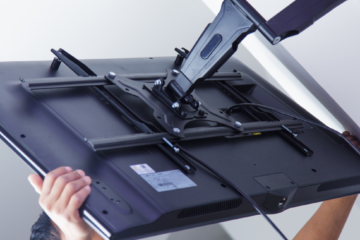Is your home in Leeds due for an electrical upgrade? Faulty wiring can pose serious safety hazards and hinder the efficiency of your appliances. This comprehensive guide will equip you with the knowledge to determine if your home needs rewiring and navigate the process seamlessly.
Signs You Might Need Electrical Rewiring:
- Flickering Lights: Dimming or flickering lights often indicate loose connections or overloaded circuits, both signs of outdated wiring.
- Warm Outlets: Hot outlets are a fire hazard and can damage plugs. This could be due to faulty wiring or overloading.
- Outdated Fuse Box: Older fuse boxes (pre-2000s) may not provide adequate safety features or capacity for modern electrical demands.
- Aluminum Wiring: If your home was built before the 1970s, it might have aluminum wiring, which can pose safety risks.
- Frequent Tripping: Regularly tripping circuit breakers indicate overloaded circuits, a potential sign of insufficient wiring capacity.
Benefits of Electrical Rewiring:
- Enhanced Safety: Modern wiring materials and safety features significantly reduce the risk of electrical fires and shocks.
- Improved Efficiency: Upgraded wiring allows for better power distribution, ensuring optimal performance of your appliances.
- Increased Capacity: Rewiring can accommodate the growing electrical demands of modern homes with numerous electronics.
- Peace of Mind: Knowing your home has a safe and up-to-date electrical system provides peace of mind for you and your family.
The Rewiring Process:
- Consultation: Contact a qualified electrician like R Pearson Electrical and Plumbing Ltd (Leeds: 07796000600, 22 Stairfoot Walk, Adel, Leeds, LS168DS) for a thorough assessment of your electrical system.
- Planning & Permitting: The electrician will discuss the project scope, obtain necessary permits, and plan the rewiring process to minimize disruption.
- Disconnection & Removal: The electrical supply will be safely disconnected, and old wiring and components will be removed.
- New Wiring Installation: New, up-to-code wiring will be installed throughout the designated areas.
- Testing & Certification: The electrician will meticulously test the new wiring to ensure safety and compliance with regulations. A certification will be issued upon successful completion.
- Cleanup & Restoration: The work area will be cleaned, and any necessary repairs (e.g., patching drywall) will be completed.
Additional Considerations:
- Cost: The cost of rewiring varies depending on the size and complexity of your home, the extent of work required, and materials used.
- Duration: The project duration can range from a few days to a week or more, depending on the project scope.
- Minimizing Disruption: Discuss options with your electrician to minimize disruption during the rewiring process.
Conclusion:
Rewiring your home is an investment in safety, efficiency, and peace of mind. By understanding the signs, benefits, and process involved, you can make an informed decision about your home’s electrical system. If you suspect your Leeds home requires rewiring, R Pearson Electrical and Plumbing Ltd. is here to assist you with expert advice and a commitment to quality service. Contact us today!



